A motorcycle helmet keeps you safe when you ride, and adds to whatever style you like best. There are a handful of different types of motorcycle helmets, all with unique pros and cons. In this article, we're going to dive into the most popular types of motorcycle helmets and what type of bike they go best with.
6 Different Types Of Motorcycle Helmets
There are six main types of motorcycle helmets: full face, modular, open face, half helmet, off-road and dual sport
- Full Face - Full face helmets are probably what you think of when you think of a standard motorcycle helmet. They provide the most protection and are great for daily use.
- Modular - These are also known as flip-up helmets. They are are a mix between open face and full face helmet.
- Open Face - As its name suggests, open face helmets are open around your face. They generally still cover the side of your head and may or may not include a drop down visor.
- Half Helmet - Half helmets, or brain buckets as they are affectionately called cover the top of your head and hook around your chin. They offer a ton of airflow but offer the least protection of any helmet on the list.
- Off-Road - These helmets are full-face helmets with a distinctive sun peak and angular chin bar. These helmets prioritize airflow and a lightweight build.
- Dual Sport - These helmets are a mix between full-face helmets and off-road helmets. They combine the angular features with the sturdiness of a traditional full face helmet.
Full Face Helmets
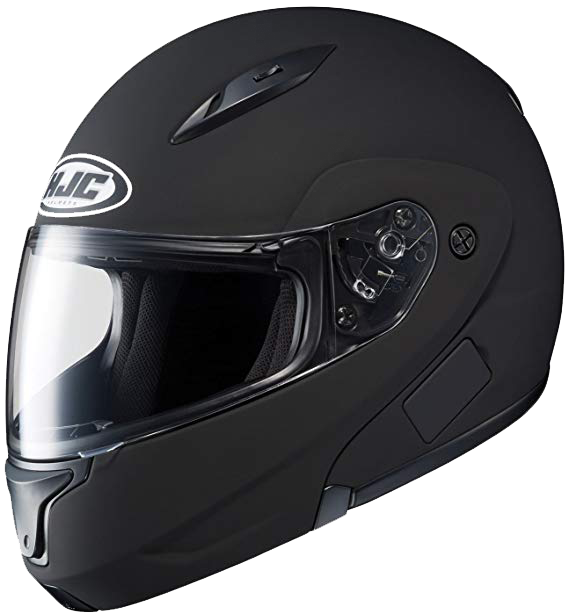
If you're looking for the most protection and that traditional motorcycle look, a full face helmet is a great choice. Full face helmets cover your entire head, from top to bottom, front to back.
The only section of a full face helmet that isn't always covered is the eye section, which generally has a visor that flips up.
One of the biggest considerations when looking at full face helmets is the type of bike you have and your riding position. If you have a sport bike, your riding position is going to be more hunched over and the angle your head rests at differs than those riding in a more upright position.
For sport bikes, look for a full face helmet with the chin bar slightly higher, and the eye port angled more towards the top of the helmet. This gives you the most visibility when hunched over.
For bikes with a more upright position, look for a full face helmet where the chin area is lower, and an eye port that is more forward facing.
Modular Helmets
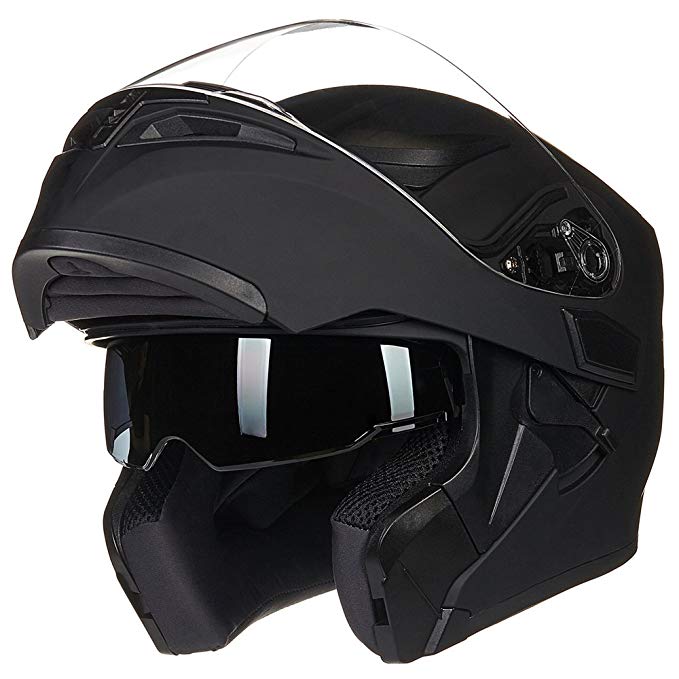
If you value versatility, a modular helmet may be something to look into. On a modular helmet, the chin area flips up, allowing you to switch between a full-face style helmet and an open-face style.
Modular helmets are most popular with motorcycle touring. They offer you the protection you need on a long ride, with the versatility to adjust your airflow on demand for more comfort on longer rides.
While modular helmets are still very safe, they are inherently less safe than a traditional full-face helmet. You're sacrificing protection for functionality, which is some cases makes sense.
Open Face Helmets
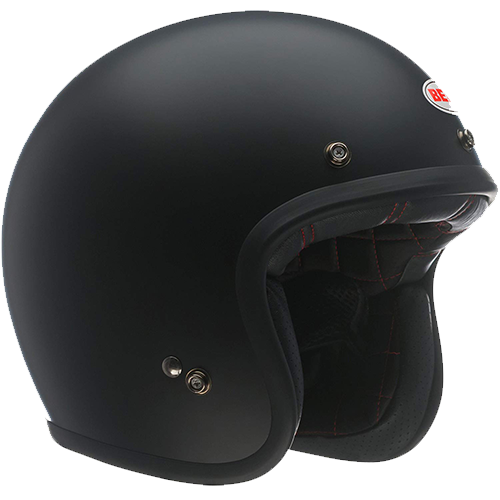
Open face helmets are most popular among scooter riders and cruisers. They have a vintage feel, with medium-level protection. When you compare open face helmets to full-face, you'll notice that structurally, they are very similar. The overall build of the helmet isn't that different.
The biggest difference between open face helmets and full-face helmets is the absence of the eye protection and chin bar.
With an open face helmet, you can either wear sunglasses or buy a visor that clips onto the front.
Half-Helmets
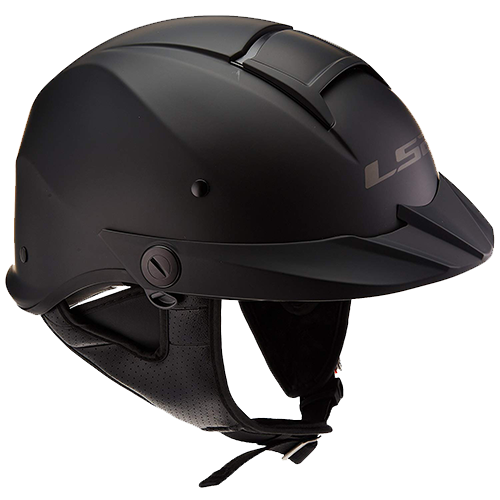
When it comes to minimalism, half-helmets take the cake. They provide the least protection out of any style of helmet but are still extremely popular with cruiser riders. They are generally associated with Harley-Davidson-style riders.
While they offer less protection, the majority of half-helmets are DOT approved, making them a legal form of protection. With that being said, if you're going on long rides or commuting on a motorcycle, a half-helmet for your daily driver is a risky choice.
Half helmets only protect the top of your head, leaving your chin, face, and sides of your head open.
Off-Road Helmets
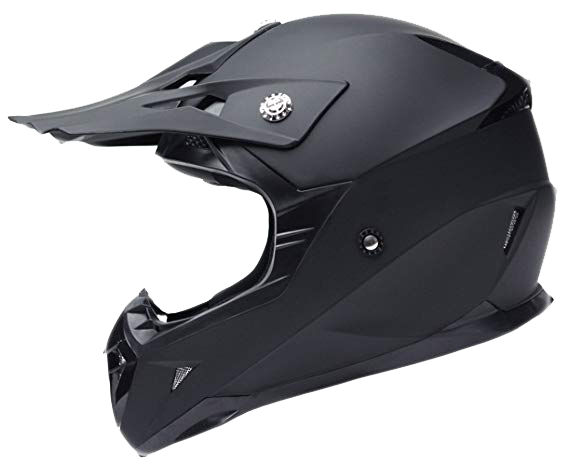
To the untrained eye, off-road helmets could be mistaken for full-face helmets. The most significant difference is their weight and streamlined design.
Dirt bike riding is demanding on the rider, and off-road helmets reflect those unique needs.
One way that off-road helmets cut weight is by minimizing sound isolation. Since dirt bikes don't normally get up to highway speeds, the need to minimize wind noise isn't there.
Motocross helmets are designed to be used with goggles. They do not have built-in eye protection. They are built this way to optimize airflow for the rider.
If you're going to be spending all of your time on a dirt bike, an off-road helmet is an obvious choice, but if you're using your motorcycle on the street, you're going to want something different.
Dual Sport Helmets
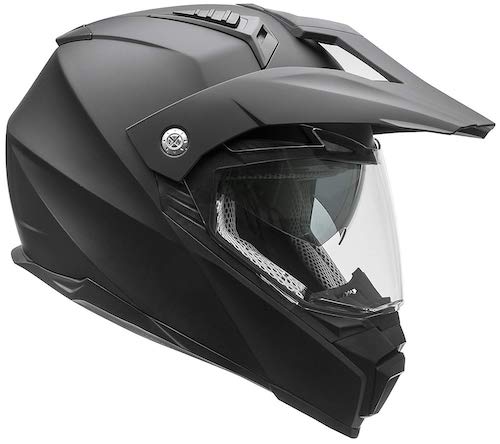
Dual sport helmets are a half-way point between the traditional full-face helmet and an off-road helmet.
Just like the off-road helmets, dual sport helmets come with a sun visor and a more pointed chin section to optimize airflow. Unlike off-road helmets though, they provide more sound isolation and a little more warmth.
Personally, I love dual sport helmets. They combine the best features of full-face helmets and off-road helmets. They are all about versatility, protection, and airflow. You're not really compromising on much if you opt for a dual sport helmet.
One thing to note, however, is that while they do offer more sound-proofing than off-road helmets, they are noisy at highway speeds. This can be off-putting if you spend a lot of time going 70+ mph.
What's The Best Choice?
Well, if there were one "best" style of motorcycle helmet, you wouldn't see so many options available. Each type of motorcycle helmet has strengths and weaknesses. The type of helmet that is best for you depends on your needs as a rider.
Which type of helmet do you like best? Let us know in the comments section below!


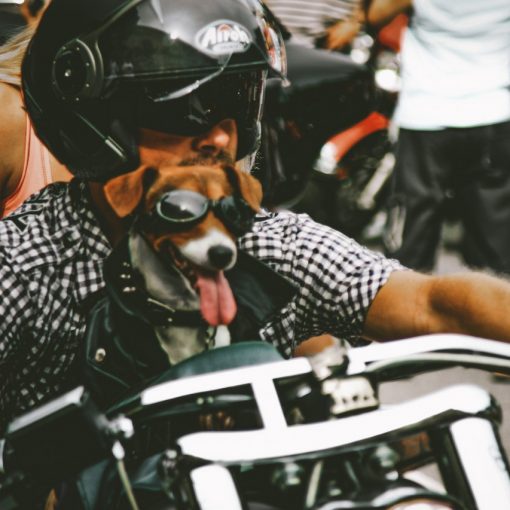

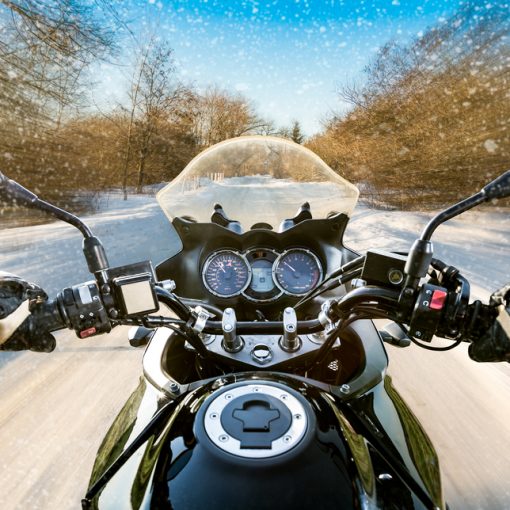
2 thoughts on “Types of Motorcycle Helmets”
The off-road helmet is nicest among them. To my own eyes, does one need to get all terrain helmets ?
I am a rider myself, and some of the information even I didn’t know about the helmets. Thanks for this really helpful article, Michael.